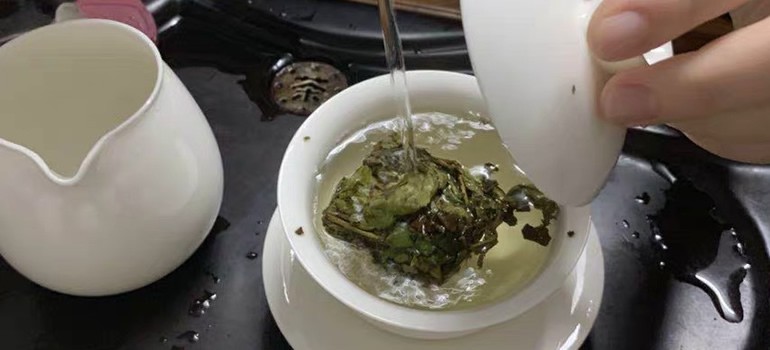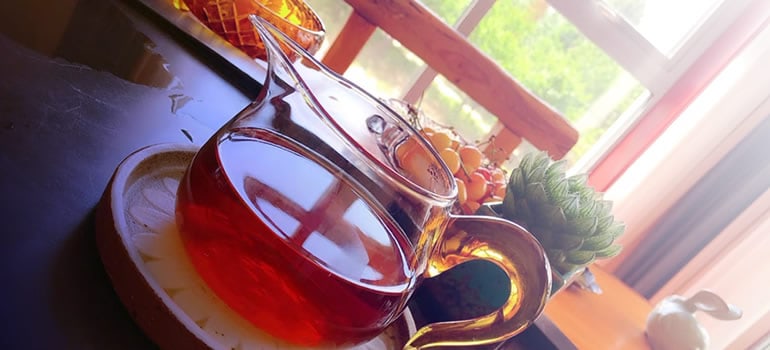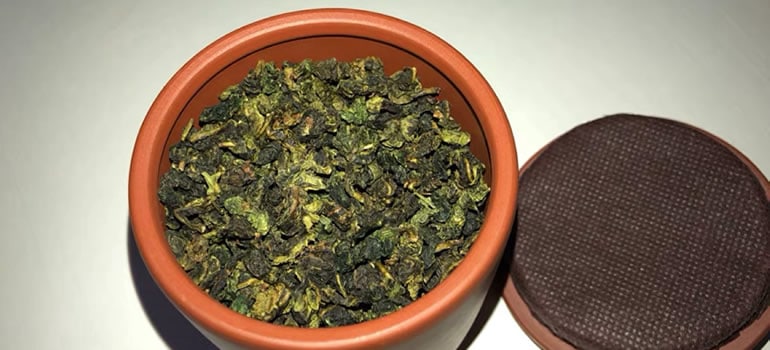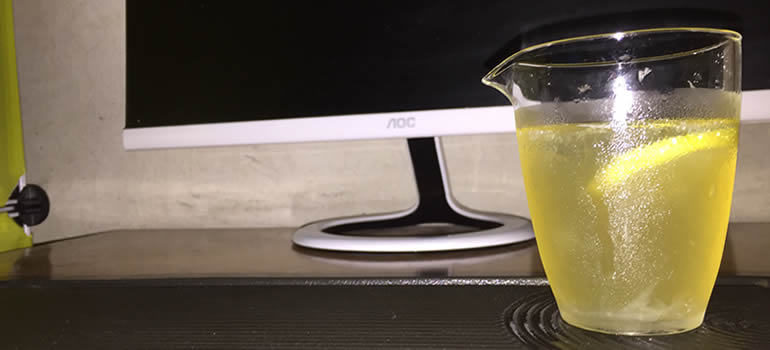I recently prepared a huge batch of tea that I forgot about, and it ended up sitting out in the air for quite some time.
And there was I, with a big pitcher of tea that has been sitting on the kitchen countertop for one too many days. So I started considering my choices. Should I drink it? Or should I throw it out?
Decisions, decisions.
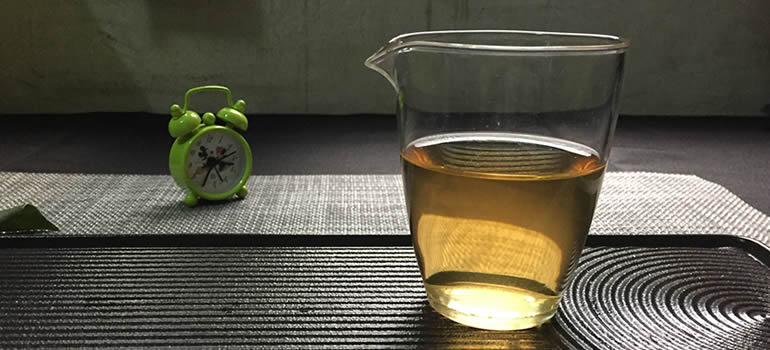
So how long can tea be left in a room? Tea should be consumed within 24 hours of brewing. Adding milk, sugar, or honey to the tea will reduce its shelf life and should be consumed within 2 to 8 hours at most. Keeping your tea refrigerated and in airtight containers can extend its storage time.
Although tea’s flavor and taste will start to alter and go bad after about 8 hours, this will depend from tea to tea. Also, I am sure you have noticed that tea doesn’t exactly spoil that fast.
How Long Does It Take for Tea to Go Bad?
Tea should be consumed right after being prepared. But that is not always the case, especially with the more forgetful of us.
The longer it sits, the more it will start losing its flavor and color. In addition to that, tea’s health and nutritional properties will begin to degrade with time.
The longer it is left in the open and the higher the environmental temperature, the faster the oxidation and thus, the quicker it will go bad.
Usually, you shouldn’t drink tea that has been left out in the open for more than 8 hours or so. It will not necessarily go bad that quickly.
Even leaving the tea bag in the tea for hours will not necessarily make it go off. However, it will mean two things
- First, it will, most likely, turn dark and will be very bitter and astringent; and
- Secondly, harmful bacteria and pathogens may start growing in it.
So, to stay on the safe side, try not to drink your tea if it has been left out for more than 3 to 5 hours.
Overnight Tea
If you want to drink your tea that has been left overnight, I would advise you on not doing it. It will neither taste good nor will it provide you with any nutritional value.
If the tea appears to be murky or there are any signs of mold growing in it do not drink it.
A great many people also like to drink their tea with dairy, sugar, honey. Despite tea being able to stay at room temperature for quite a while, these additional ingredients we use have a shelf life on their own.
What this means for our long-forgotten cup of tea is that it may have spoiled a lot sooner than previously expected. Let’s take a further look.
Tea with Milk
Milk is frequently added to black tea, rooibos, and some chai teas. Usually, high-fat and skimmed milk are avoided, and so is adding a creamer.
Pasteurized milk can be kept in the fridge for a really long time.
But the case is not the same with dairy milk – pasteurized or not – that has been opened and left to stay at room temperatures.
- Milk should not be kept out in the air and at room temperature for more than two hours.
- During the summer, when the temperatures can go as high as 90 degrees F – if not more – milk should not be kept more than an hour out in the open.
The hotter it is, the lower the shelf life of the milk will be. And it doesn’t take much for bacteria to start growing in it.
Adding milk to your tea means that the milk will be heated to a high temperature. This will, in turn, speed up the time of it spoiling.
Placing your tea with milk in the fridge can prolong its shelf life. Again this will depend on the milk. And usually, pasteurized milk can be stored for up to 7 days in the fridge at 40 degrees F.
Tea with Sugar or Honey
Sugar and honey are other ingredients that we frequently may be adding to our tea. Most often they are used for stronger teas like the black tea, or tea blends containing black tea like earl gray.
Tea with sugar or honey in it shouldn’t be left out in the open for more than a few hours, especially in the hot weather.
Due to the sugar content, tea can actually start fermenting with time.
Sun tea
Sun tea is an old-fashioned and very nostalgia-inducing way to brew tea which is usually done in the summer. It is done by placing the tea bags in a glass pitcher or jar and letting it sit in the sun for typically 2 hours.
However, there are several concerns with that method of tea preparation.
The water will never reach boiling temperatures. It will get warm, of course, but that’s about it. The temperatures will not be enough to kill off any bacteria that the tea leaves may have been contaminated with. In addition, the warm water is a great medium for the bacteria to grow and multiply, exposing you to a higher risk.
Of course, drinking sun tea doesn’t mean you will get 100% sick. The chances are very low for that to happen, considering the modern-day preparation and processing methods of tea, but the chances are still present.
How Long Can Iced Tea Be Left in a Room?
Iced tea is not much different, generally speaking.
The preparation process of ice tea involves the same steps we take when we prepare regular tea.
Usually, tea bags or loose leaf tea is steeped in boiling water. After which it is poured in a suitable tea pitcher left to cool for a few minutes and then refrigerated for a few hours.
According to the data from the Centers for Disease Control and Prevention (CDC), iced tea is generally considered safe. Even if the tea leaves used have been contaminated with certain kinds of bacteria brewing the tea at appropriate temperatures will get rid of them.
Brewing iced tea at temperatures of at least 195 F for 3 to 5 minutes should be enough to kill off any bacteria.
Also, it is recommended not to store iced tea for more than 8 hours, and additionally, the storage container should be cleaned daily.
The most significant risk of bacterial contamination comes from the tea pitchers and dispensers that have not been adequately cleaned.
Can old tea make you sick?
Tea that has been sitting out in the open for a while may not necessarily make you sick.
However, there will be a couple of problems with tea that has been sitting on the kitchen countertop for a while.
First, it will go bitter, and I am sure you know about it. And second, it may cause stomach upset in certain causes and with people that have more sensitive digestion.
How to store tea for longer?
According to the information from the CDC, one of the most important factors in storing tea is its container.
It needs to be clean. Really clean. Otherwise, we are risking the development of harmful pathogens the longer we store tea in it.
Also, one of the main factors that affect the rate at which tea spoils is oxidation. Thus keeping tea in an airtight container is preferred as that way, we will reduce the deterioration of both its color and nutrient properties.
Additionally, exposure to light and odors can speed up the spoilage of tea, so once again choosing the right container to store tea in is crucial.
And last but not least, is to keep the tea free of any additives.
As we have observed adding sugar, honey, milk, maple syrup, and anything of the sorts will significantly reduce its shelf life. Not to mention that it may even cause it to ferment into a nice little alcoholic cup of tea.

